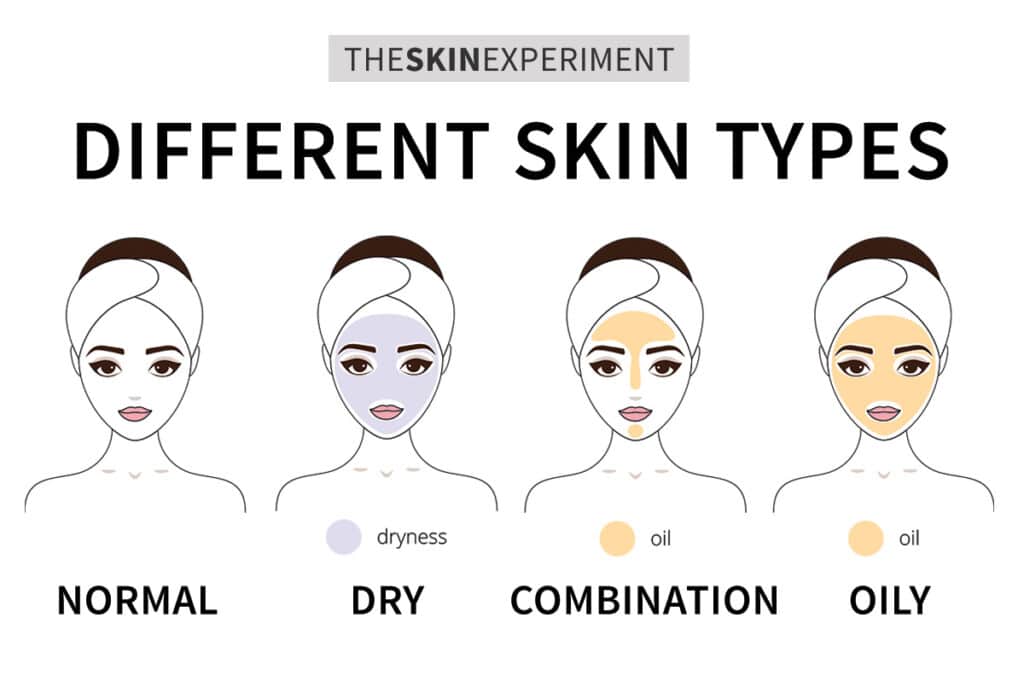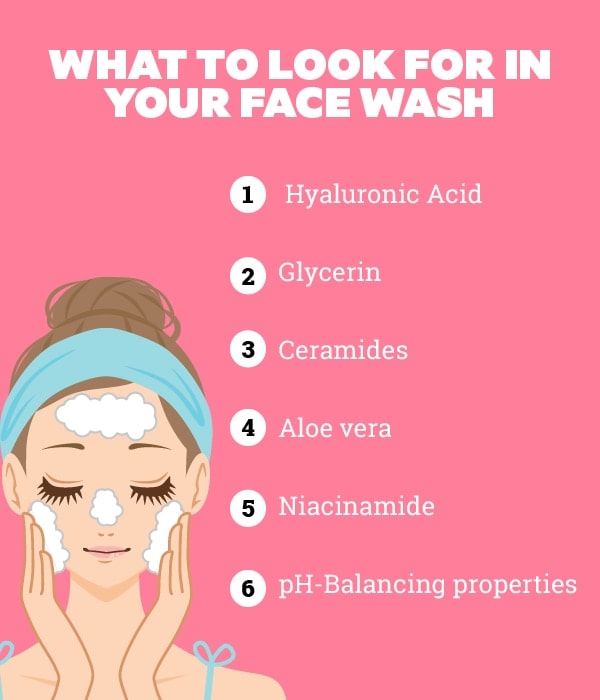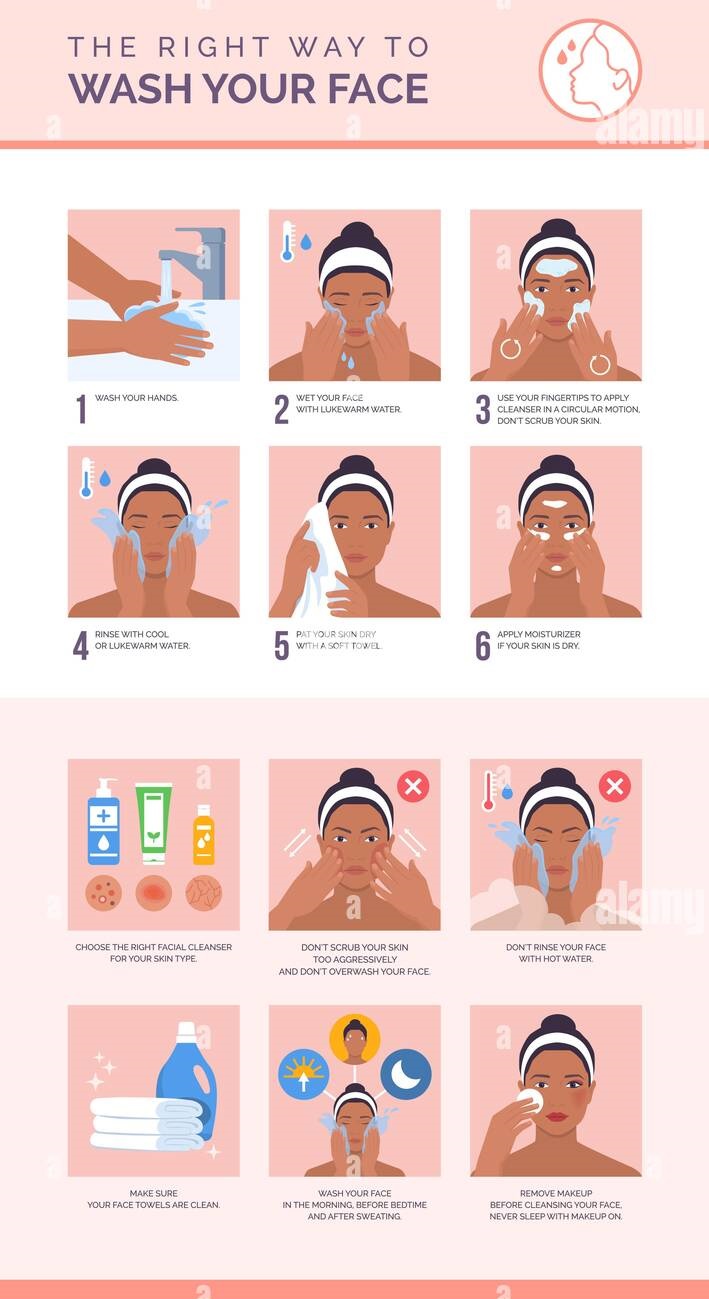Discover the best face wash for your skin type and achieve a glowing complexion with our expert recommendations. From oily to sensitive skin, we'll guide you through the ingredients to look for and common mistakes to avoid. Trust our credible sources and start your journey to healthier skin today!
Say Goodbye to Skin Woes: Expert Recommendations for the Perfect Face Wash
I.importance of face wash for skincare

Importance Of Face Wash For Skincare
Face wash is an essential part of any skincare routine as it helps to remove dirt, oil, and impurities from the skin's surface. It also helps to unclog pores, prevent breakouts, and maintain healthy-looking skin. Using the right face wash can make a significant difference in the appearance and overall health of your skin.
However, with so many face wash options available in the market, it can be overwhelming to choose the right one for your skin type. In this article, we will be discussing how to identify your skin type, what ingredients to look for in a face wash, and how to choose a face wash that will best suit your skin's needs.
By the end of this article, you will have a better understanding of how to choose the best face wash for your skin type and maintain healthy, glowing skin. So, let's dive in!
Read more: Discover the Benefits of Deep Cleansing: The Ultimate Guide for a Clearer, Healthier Face
II. Understanding Your Skin Type
Your skin is the largest organ in your body and plays a vital role in protecting you from the outside world. Knowing your skin type is crucial for selecting the right products to take care of it. In this article, we'll explore the four common skin types - oily, dry, combination, and sensitive - and provide tips on how to determine your skin type.

Understanding Your Skin Type
Oily Skin
If your skin produces an excess of sebum, you likely have oily skin. This excess oil can lead to clogged pores, blackheads, and acne. Oily skin typically has a shiny appearance and feels greasy to the touch.
Dry Skin
Dry skin is characterized by a lack of natural oils, which can result in flakiness, roughness, and even cracking. Dry skin may also feel tight or itchy, especially after exposure to harsh weather conditions or hot showers.
Combination Skin
As the name suggests, combination skin is a combination of both oily and dry skin. Most commonly, the T-zone - the forehead, nose, and chin - will be oily, while the cheeks are dry. Combination skin can be tricky to manage because it requires using different products for different areas of the face.
Sensitive Skin
Sensitive skin is easily irritated by a variety of factors, including environmental pollutants, certain skincare ingredients, and even stress. Sensitive skin can manifest as redness, itchiness, or even hives.
How to Determine Your Skin Type
So, how can you determine your skin type? One simple method is the blotting paper test. Start by washing your face and patting it dry. After an hour, take a piece of blotting paper and press it gently against different parts of your face. Hold it up to the light and check for oiliness or dryness. If the paper picks up oil, you likely have oily skin. If there is no oil, but your skin feels tight, you probably have dry skin. If some areas of the paper pick up oil while others don't, you may have combination skin. If your skin feels irritated or itchy after the test, you may have sensitive skin.
Another method is to examine your pores. Stand in front of a mirror and examine your face. If you have small pores, you likely have dry or sensitive skin. If your pores are large and easily visible, you probably have oily skin. If you have both small and large pores, you may have combination skin.
Conclusion: Understanding your skin type is crucial for choosing the right skincare products, especially when it comes to face wash. By knowing your skin type and its unique characteristics, you can select products that will help keep your skin healthy
III. Ingredients to Look for in Face Wash
In this article, we will be discussing the different types of ingredients commonly found in face wash and how they work to benefit different skin types.

Ingredients To Look For In Face Wash
Salicylic acid is a beta-hydroxy acid that works by penetrating deep into the pores to unclog them and exfoliate the skin. This ingredient is best suited for oily and acne-prone skin types as it helps to reduce oil production and prevent breakouts.
Glycolic acid is an alpha-hydroxy acid that works by gently exfoliating the top layer of the skin to reveal brighter, smoother, and more even-toned skin. This ingredient is best suited for normal to dry skin types as it helps to hydrate and brighten the skin.
Benzoyl peroxide is an antibacterial agent that works by killing the bacteria that cause acne. This ingredient is best suited for oily and acne-prone skin types as it helps to reduce inflammation and prevent breakouts.
Hyaluronic acid is a hydrating ingredient that works by attracting and retaining moisture in the skin. This ingredient is best suited for dry and sensitive skin types as it helps to hydrate and plump up the skin, reducing the appearance of fine lines and wrinkles.
Tea tree oil is an essential oil that works by reducing inflammation and killing the bacteria that cause acne. This ingredient is best suited for oily and acne-prone skin types as it helps to prevent breakouts and reduce redness.
In conclusion, understanding the different types of ingredients commonly found in face wash and how they work can help you choose a product that is best suited for your skin type. It is always recommended to consult with a dermatologist before introducing new products into your skincare routine, especially if you have sensitive skin or a pre-existing skin condition.
IV. Choosing the Right Face Wash for Your Skin Type
When it comes to taking care of your skin, choosing the right face wash is key. Not all face washes are created equal, and using the wrong one can lead to irritation, dryness, and other unpleasant side effects. So how do you choose the best face wash for your skin type? Let's take a closer look.

Choosing The Right Face Wash For Your Skin Type
First, it's important to identify your skin type. Are you oily, dry, combination, or sensitive? Once you know your skin type, you can look for a face wash that is specifically formulated to meet your needs.
For oily skin, a foaming face wash can be a great option. Look for one that contains salicylic acid or benzoyl peroxide, which can help to unclog pores and reduce oiliness. Our top pick for oily skin is Neutrogena Oil-Free Acne Wash, which has a 4.5-star rating on Amazon and is recommended by dermatologists.
If you have dry skin, you'll want to look for a face wash that is gentle and hydrating. Avoid anything that contains harsh ingredients like sulfates or alcohol, as these can strip your skin of its natural oils. We recommend Cetaphil Gentle Skin Cleanser, which has a 4.6-star rating on Amazon and is a favorite among dermatologists.
Combination skin can be tricky to treat, as it can be oily in some areas and dry in others. Look for a face wash that is designed specifically for combination skin, like La Roche-Posay Effaclar Purifying Foaming Gel. This face wash has a 4.7-star rating on Amazon and contains gentle ingredients that won't dry out your skin.
Sensitive skin requires extra care and attention, as it can easily become irritated or inflamed. Look for a face wash that is free from fragrances and other potential irritants. Our top pick for sensitive skin is CeraVe Hydrating Facial Cleanser, which has a 4.7-star rating on Amazon and is recommended by dermatologists.

Face Wash with cold water
No matter what your skin type, it's important to choose a face wash that is gentle, effective, and safe for daily use. By following these tips and using the right products, you can achieve a clear, healthy complexion that looks and feels great.
V. Proper Use and Application of Face Wash
Face wash is an essential part of any skincare routine, but are you using it correctly? Many people make mistakes when it comes to applying face wash, which can lead to less-than-optimal results. In this article, we'll provide you with tips on how to properly use and apply face wash for maximum effectiveness.

Proper Use And Application Of Face Wash
First, start by washing your hands with soap and water before applying face wash. This will help to prevent the transfer of bacteria and other germs onto your face.
Next, wet your face with lukewarm water. Avoid using hot water, as this can strip your skin of its natural oils and cause irritation. Once your face is wet, apply a small amount of face wash to your fingertips.
Gently massage the face wash onto your face using circular motions. Pay extra attention to areas that are prone to oiliness or acne, such as your forehead, nose, and chin. Be careful not to rub too hard, as this can cause redness and irritation.
After a minute or so, rinse your face with lukewarm water. Be sure to rinse thoroughly to remove all traces of face wash from your skin.
Pat your face dry with a clean towel. Avoid rubbing your face, as this can cause irritation and lead to the formation of wrinkles.
Now that you know how to properly use and apply face wash, let's take a look at some common mistakes to avoid:
- Using too much face wash. A little goes a long way, so use only a small amount of face wash to avoid drying out your skin.
- Rubbing too hard. Be gentle when massaging face wash onto your skin to avoid causing irritation or redness.
- Using hot water. As mentioned earlier, hot water can strip your skin of its natural oils and cause irritation. Stick to lukewarm water instead.
- Not rinsing thoroughly. Be sure to rinse your face thoroughly to remove all traces of face wash from your skin.
By following these tips and avoiding common mistakes, you can maximize the effectiveness of your face wash and achieve a clear, healthy complexion.
VI. Conclusion
Face wash is an essential part of any skincare routine. It helps to remove dirt, oil, and other impurities from your skin, preventing acne and other skin problems. Using face wash also helps to keep your skin hydrated and fresh, giving you a healthy and youthful appearance.
In conclusion, using a face wash is an important part of any skincare routine. It helps to remove impurities, prevent acne, and keep your skin hydrated and healthy. When choosing a face wash, consider your skin type and look for products that are gentle and effective. Don't be afraid to try different products until you find the one that works best for you. Share your experiences and feel free to ask any questions you may have about face wash. We hope this article has been informative and helpful to you.
References:

